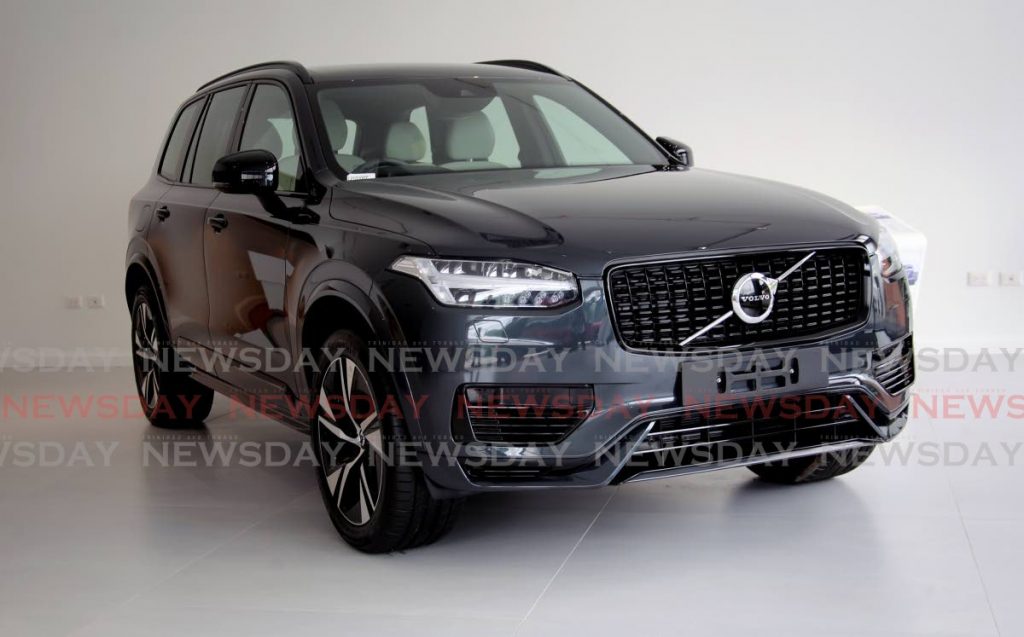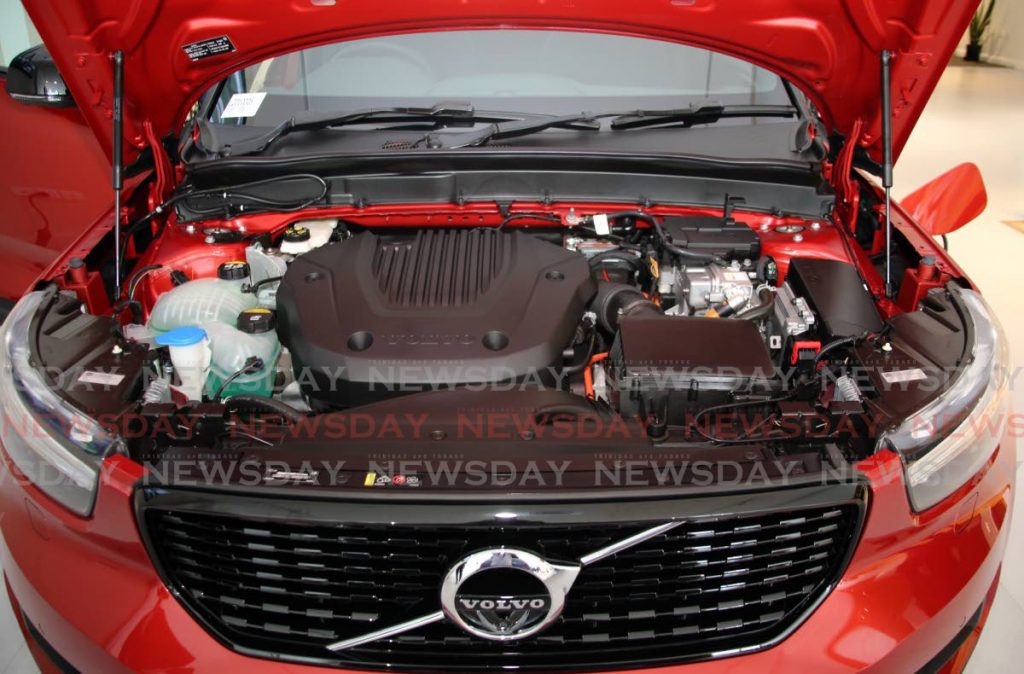Electrification, the future of Trinidad and Tobago's car industry

There is no doubt that electrification is at the centre of the automotive industry’s future.
Many automakers – including major players like Volvo and General Motors – have already announced that within the next decade or two, the vehicles they manufacture will no longer have internal combustion engines but hybrid or electric motors. These vehicles will have less of a negative effect on the environment and with no gas bill, they will also have less of a negative effect on the pockets of consumers.
But for Trinidad and Tobago, that journey toward electrification has just begun. While countries, such as Barbados, already have an established industry, infrastructure and policy framework, TT is just beginning to open doors for the electric and hybrid vehicles industry to go full speed ahead.
This year that came in the form of a removal of all customs duties, motor vehicle tax and value-added tax on the importation of battery-powered electric vehicles with an age limit of two years from January, which was announced by the Finance Minister, Colm Imbert, in the reading of the 2021-2022 budget on October 4.
Even with the concessions, electric vehicles may still be out of range for many motorists when it comes to price, but hybrid vehicles like the Toyota Fielder and Aqua have developed popularity on the nation’s roads with almost little to no help from the government.
Industry professionals told Business Day that in order to catch up with the rest of the world in the electrification race, government must be bolder and put similar concessions on hybrid vehicles as was placed on electric.
TT dead last in electrification race?
Rhondall Feeles, vice president of the TT Automotive Dealers Association (TTADA), told Business Day that used car dealers saw the benefits of electric and hybrid vehicles from as early as 2012. Because of the collaboration of used car dealers, Feeles said TT now has about 40,000 hybrid vehicles on the roads – more than double the number of CNG vehicles, which stands at about 15,300.
He said the TTADA had been lobbying for support but it wasn’t until this year government seemed to take heed.
“In 2013, the government wasn’t even thinking about e-cars, government wasn’t thinking about going green. They were looking at an alternative for when they remove fuel subsidies.
“We saw that it would be an opportunity to kill two birds with one stone – as subsidies are going to be removed and fuel prices go up, now you are going to have opportunities for even better alternatives going toward e-mobility, which would be the introduction of the hybrid cars and the electric cars.”
At that point in time hybrids were becoming more popular. The Toyota Prius had gained a surge of popularity that helped several people make the switch from internal combustion engines to electric hybrid cars. But, Feeles said, government went down a different road with CNG vehicles.
In a recent panel discussion on TTT, Minister of Energy and Energy Industries Stuart Young said government spent about $200 million on the campaign to establish a CNG industry. In that same discussion, he admitted that the industry was “not where it’s supposed to be” with a comparatively low number of CNG vehicles on the road.

But that is not to say that the state did not support hybrid and electric vehicles. In former finance minister Larry Howai’s 2015-2016 budget proposal, the People's Partnership government exempted motor vehicle tax and VAT on new and used hybrid and electric-powered vehicles not older than two years. But for electric vehicles, the motor vehicle tax and VAT concessions were for vehicles with engine sizes less than 179 kilowatts.
The restrictions on the size of engines of electric vehicles meant that the cars available had a very short range, which, along with a limited number of charging stations led to range anxiety. That caused the early drive to electric vehicles to crash.
“Electric fell flat on its face. If in that five-year period 100 came, it would be plenty,” Feeles said. “We needed government support for fully electric to work.”
With the 2015 budget concessions on hybrids, Feeles said businesses were able to import a range of vehicles, including the Prius, the Nissan X-Trail, the Toyota CHR, and a list of other vehicles. But in the 2017-2018 budget – in the Rowley administration's first term – Imbert put a cap on the concessions provided in 2015, removing all incentives available to hybrid vehicles with engines exceeding 1599 cc.
Imbert also increased the motor vehicle tax and customs duty on private vehicles with engine sizes above 1599 cc but not exceeding 1999 cc.
To add to this, the policy which exempted vehicles from tax had a sunset clause which came into effect in 2020 and was not extended. Feeles said because of this, people were pushed backward to once again look at combustion engines for affordability.
“When they introduced the taxes they cut the range of vehicles down to half. Now the things that became more available were the Fielder, the Axio, the Aqua, those lower cc ratings,” Feeles said. “If the policies had remained the way they were and government decided to support the electric hybrid as well as CNG, we would have been further ahead. More people would have left internal combustion engines and would own hybrid vehicles, ready to take the next step to fully electric.”
Electric avenues
Vir Sieunarine, brand manager for Volvo, distributed by Massy Motors, said government is now taking the right steps to develop a legislative framework to keep the country on the path to electrification.
With the launch of the new Volvo showroom last Wednesday and the introduction of new fully electric vehicles, he added that Volvo had always led the charge behind electrification of the motor vehicle industry worldwide and with its innovations and adherence to quality products with a range of safety features, the Swedish automaker is now paving the way for others to follow.
“When I first started seven years ago, Volvo cars were all combustion engines. They made the bold statement that all their vehicles would be either hybrid or electric by 2025. That has now come to light. As of now we cannot get a combustion engine car from Volvo. Everything is hybrid or electric.”
He said that it was a bold but welcome step for Massy Motors which cares for the environment and seeks to pioneer the new way to drive.
Sieunarine said Volvo embarked on an education process in order to get consumers to ride along with its electric vehicles.
“They tried to educate as to why buy electric and hybrid and how would it work,” he said. “The why would be it is more fuel efficient, you can save money, it is going to be a more family-oriented vehicle that would contribute to your kids growing up in a clean and safe environment. They pushed that first then they got into the efficiency and power of the car and so on.”
He said Massy Motors is trying a similar tactic to get customers to buy into electric car use. He added that customers are looking forward to having an avenue to purchasing an electric vehicle.
“The public is excited and a bit nervous which is normal for anything new,” he said. “What I try to do is assure my customers is the framework and the training was put in place by us more than a year and a half ago. Our technicians are trained, I am trained and our sales staff are trained in it. Once those barriers of worrying about repairs and maintenance are broken, I think it will have a buzz and excitement around it.”
Feeles said the establishment of an electric and hybrid car industry can also have a social effect with youths gaining access to training and education in the management and repair of electric vehicles, which would serve as a futuristic means of employment for future generations.

“The electric and hybrid cars have a great social benefit particularly after a pandemic. Had they listened in 2015, we would have had now not only people looking toward preparing for electric, we may have had a trained team of youths that would have at least eight years experience in hybrid and electric technology that we could have been exporting across the region,” Feeles said. “So Barbados which is now purported as leaders in this electric drive, they would have been looking to TT because we would have had our youths far ahead of theirs.”
Feeles said despite the limitations on the amount of electric vehicles several private businesses took it upon themselves to train staff in the management and maintenance of electric and hybrid vehicles, partly as a requirement to be able to sell them.
Skipping a step?
Feeles suggested that with government being a part of upcoming COP 26 discussions and also being part of the Paris Agreement, both of which follow a mandate to improve environmental conditions, government is making an ambitious drive to move from combustion engines to fully electric.
But, he suggested that government should not skip the step of properly establishing a hybrid car industry in TT.
“I believe government will put the infrastructure in place for electric vehicles, but my advice is you must have some involvement in hybrid right now,” Feeles said. “Electric vehicles are still too expensive and the people that you need to make that transition is the people the hybrid cars were accessing – the middle class. If you have the cheapest electric car, you are still paying $240,000. The average man is not going to be able to afford that.”
Sieunarine said with the new tax exemptions, vehicles like the XC40 fully electric, expected to roll into local Volvo showrooms soon, the price of the vehicle was reduced by about 25 per cent. But, he noted that the vehicle’s price without the exemptions cost around $700,000. The hybrid version, available now, comes in at about $569,000
“With the concessions it would come in at under $600,000,” he said. “Now electrification and wind energy and solar energy, these things are not cheap. But what could help us is the taxes on these cars.”
“Hopefully government would make a bold move in the future and remove taxes on both hybrid and electric cars so we could move forward in a different manner.”
Sieunarine noted that government, in the latest budget proposal, sought to make a move that would benefit the country in the future. He added that while Volvo is leading the charge, other companies are also following suit.
“Subaru is going to be in it, Volkswagen is going to be in it, Nissan and Hyundai as well. And those are mass market brands. I think everyone will benefit from this. They may not see it now but they may see it in the next year to two years.”
Go for it
Sieunarine, asked to advise people on whether or not to invest in a hybrid or electric vehicle, responded, “Go for it.”
“As long as there is a hybrid or an electric option, go for it. Gone are the days of gas. Gone are the days of stopping to full up oil and servicing regularly,” he said.
He said most hybrid and electric vehicles come with warranties up to ten years, so any issue could be dealt with by professionals. He also added that the vehicles need little to no maintenance, and people would only have to service their cars once a year to repair brakes and other minor parts.
He said while the public infrastructure is not completed as yet, he noted that government continues to make strides to make powering up electric and hybrid cars easier, and Massy Motors, through Volvo, is willing to help TT take charge of the electric vehicle industry.
“One good thing is the gas station in Couva,” he said. “It is amazing and humbling to see because that is the kind of things you see abroad. So I believe government is now starting to develop the infrastructure. I would love to see an electrified public transport system. I would love to see electric buses and so on. That is the direction we need to go in and I think government is putting things in place to go there.
“I think Massy will want to help everyone get an electric car, even if it is not with us,” he added. “We want to see electric, we want to see the nation go green, and we want to live in a better environment.”

Comments
"Electrification, the future of Trinidad and Tobago’s car industry"